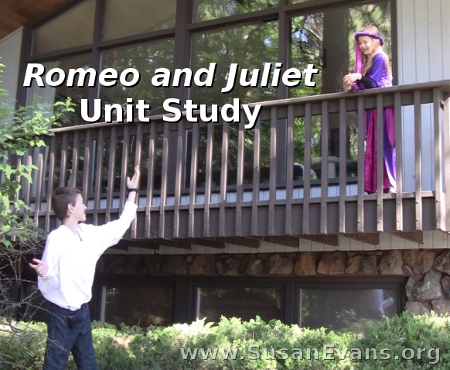I assigned my children to write a summary of Shakespeare’s Romeo and Juliet. My 12-year-old son Bryan asked if he could write it as a poem. I said, “Sure.” The result was a beautiful Romeo and Juliet poem for kids:
I will tell you a tragic love story;
Two families were in a fight.
The Montagues and the Capulets
Couldn’t stand each other’s sight.
Romeo of the Montagues
Arrived at a Capulet ball.
He fell in love with Juliet,
And later he climbed her wall.
To Juliet’s window he loudly proclaimed,
“What light through yonder window breaks?
Let us go to Friar Lawrence’s cell
To be married for both of our sakes!”
The next day they secretly married.
Tybalt killed an innocent man.
Romeo revenged him by killing Tybalt
And was banished, so off he ran.
Juliet’s father told her, “Marry Paris.”
But sadly, she was already wed.
She ran to Friar Lawrence who said,
“Drink this potion and go to bed.”
Presuming that Juliet was dead,
Her family buried her with sorrow deep.
Romeo never got the message
That Juliet was only asleep.
So he entered Juliet’s tomb,
And his life he brought to an end.
Juliet woke up and killed herself,
And their families did finally amend.
Related product: Romeo and Juliet Unit Study




